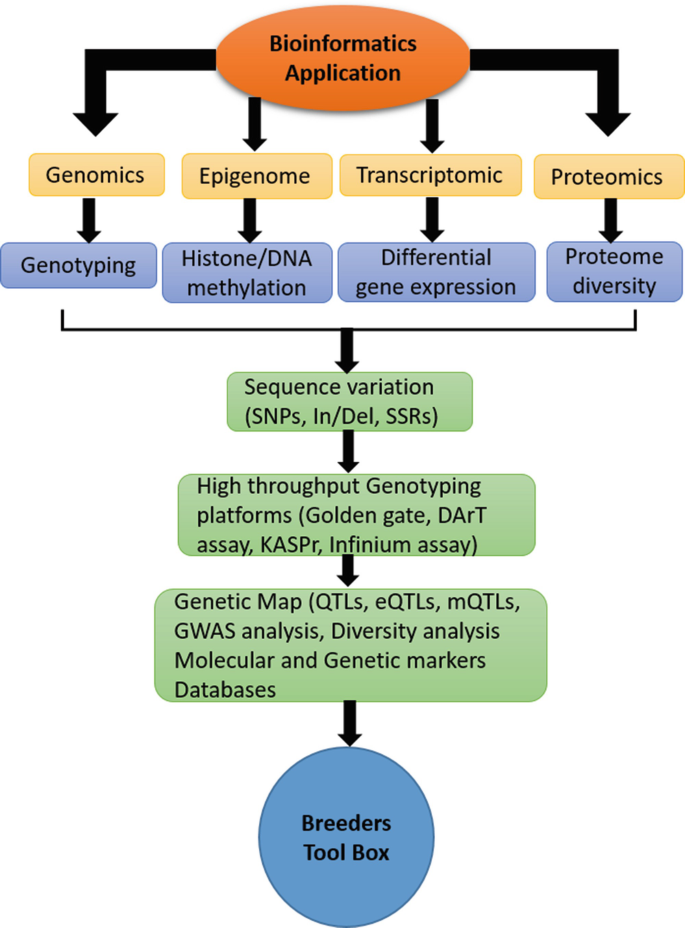Rumored Buzz on Bioinformatics Tutor
Rumored Buzz on Bioinformatics Tutor
Blog Article
Bioinformatics Tutor Fundamentals Explained
Table of ContentsBioinformatics Tutor for DummiesThe Best Strategy To Use For Bioinformatics TutorIndicators on Bioinformatics Tutor You Need To KnowThe Bioinformatics Tutor StatementsSome Ideas on Bioinformatics Tutor You Should Know
Of the overall individuals entailed in the training, 80% were trainees from public college establishments, while the continuing to be 20% originated from exclusive organizations. To get approved for a certificate of engagement, students were required to go to at the very least 90% of the overall training hours. As a result of this requirement, a remarkable 95% of the individuals effectively gotten their certifications, having not only met the minimum attendance standards however additionally completed all appointed tasks throughout the training.
Throughout the height of the COVID-19 pandemic, especially between June and August 2020, the job group was charged with organizing specialized training in bioinformatics. This training was particularly targeted at trainees from the study group Center for Study in Applied Computer at the Federal College of Pará (UFRA) The adaptation to remote understanding platforms because of the pandemic produced a chance to discover new teaching techniques and electronic devices that enhanced both reach and effectiveness.
This training course was developed to offer an obtainable yet extensive review of Artificial Intelligence strategies, especially as used in bioinformatics (Bioinformatics Tutor). This digital style allowed involvement from students across Brazil, numerous of whom might not have had the chance to attend in-person sessions.
The Best Strategy To Use For Bioinformatics Tutor
A noteworthy feature of this course was its focus on hands-on understanding. Approximately 50% of the complete training hours were committed to useful tasks where pupils developed intelligent models and applications in a series of clinical domain names, consisting of genes, molecular biology, and ecological information analysis. Extensively made use of devices and structures such as Spyder, Google Colab, Jupyter Notebooks, and Orange were integrated into the coursework. These systems enabled pupils to take part in real-time data manipulation, version training, and formula testing.
The training course brought in 80 individuals in total amount. Sixty of them were affiliated with different college establishments in the state of Pará, while the remaining twenty came from establishments found in five other Brazilian states. This broad geographical depiction highlighted the nationwide interest in bioinformatics and the growing demand for specialized abilities in this field. By presenting Artificial Knowledge in a useful and relevant context, the campaign offered to link the void in between concept and real-world application, giving students with a strong foundation for future research or employment in the field.
The training campaign formed component of a more comprehensive scholastic outreach initiative understood as the Bioinformatics on the Roadway job. This task has, over the years, presented loads of pupils to the globe of bioinformatics and computational biology. The occasions held under this umbrella initiative have actually taken location throughout numerous areas and years, as summed up in Table 1 (Checklist of events, areas, years, and overall varieties of trainees and teachers)
Numerous of these teams, initially brought with each other by their engagement in training events, have since gone on to generate independent scientific research in partnership with neighborhood scholastic organizations. The training not just promoted clinical thinking within the context of bioinformatics but also triggered collaborative relationships that extended beyond the training atmosphere.
How Bioinformatics Tutor can Save You Time, Stress, and Money.
The very same group, omitting IH and RR, additionally acted as tutors for the practical training components. Financing for the project was given with the great post to read grant 88887.200562/ 2018-00 from CAPES.
The Federal University of Pará's Office of Research (PROPESP/UFPA) also provided monetary assistance, specifically for the manufacturing of the last manuscript. The writers state no industrial or financial disputes of passion that could have influenced the research. All opinions and interpretations shared in this write-up are exclusively those of the authors and do not necessarily show those of their corresponding institutions, the author, editors, or reviewers included in the magazine procedure.

Bioinformatics Tutor for Beginners
From a pedagogical viewpoint, the training approach used in the training was deliberately interactive. Classes were conducted in a manner that urged student involvement and discussion, exceeding memorizing memorization to check out just how concepts are created, applied in life, and examined in academic setups. The educational approach concentrated on nurturing both solid and having a hard time students, giving customized support, and building self-confidence with sustained mentorship and perseverance.

Each team, consisting of around 36 participants, was supported by three mentors-- a lot of whom were postdoctoral scientists with customized know-how. These advisors not just aided make the group tasks however additionally facilitated their implementation, guaranteeing that each research study concern was both properly challenging and relevant. The objective was to provide a biologically reasonable context that participants could check out with flexible purposes and accessibility to curated datasets.
For added understandings right into the approach and outcomes of this project-based understanding approach, readers are directed to S1 Text, which includes comprehensive descriptions of the instructional framework, assessment approaches, and task themes utilized in the training sessions.
The 30-Second Trick For Bioinformatics Tutor
Of the overall participants involved in the training, 80% were trainees from public greater education and learning institutions, while the remaining 20% came from personal institutions. To certify for a certificate of engagement, trainees were needed to attend at least 90% of the total training hours. Especially, beyond the trainees who enrolled in the training sessions, seven seasoned trainers got involved in providing the training courses, while 3 committed research professors coordinated the total training process. Approximately 50% of the complete training hours were committed to functional activities where pupils built smart models and applications in an array of clinical domain names, consisting of genetics, molecular biology, and environmental data evaluation. The training not just cultivated clinical thinking within the context of bioinformatics however additionally stimulated collaborative partnerships that prolonged past the training atmosphere.
Report this page